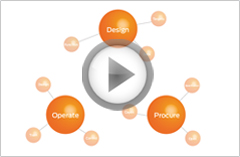Technology Strategy Board: Driving Innovation
It is a sad fact that the TSB focus for grant funding is still predicated on innovations in the development of new technology in the drive for a sustainable future, and does little to encourge innovation in way in which we use our facilities in the built environment – our homes, offices, libraries and hospitals to name but a few. We all know from our own experience in our own homes, that the quantum of resources (energy and water) that we consume is so largely determined by how we use our homes. We can have all the technology that we desire – but if we do not wish to use it responsibly then it will do little to make us more sustainable. Studies show that from a low carbon perspective, buildings perform little better today than they did in the 1990’s, yet over this period we have seen remarkable development and innovation in building technologies. In an effort to slow down global warming, the HM Government Carbon Reduction Commitment requires the UK to make substantial energy consumption savings.
Amongst the experts working in low carbon strategies for the built envionment, there is a now consensus emerging that we have to fundamentally change the way that we specifiy, engineer and use the buildings that we occupy for our various needs if we are to meet the government targets.
In The Conclude Consultancy we believe that step changes in low carbon performance will come not just from innovative technologies, but from a fundamental change in the way in which use the buildings that we live and work in. We believe that building users need to be informed of the carbon impact of the choices that they make in using the buildings that they occupy. Certainly we need innovative technologies able to deliver meaningful information which is directly correlated to the building In-Use – but we also need users to be held accountable for that use. To achieve this we need to correlate the way in which we use our facilities with the resultant energy consumption.
In our work on latest work on hospital design we are planning to directly correlate resource consumption (notably energy consumption) with the working practices that take place. It is intended that departmental managers will use the information to help change working practices and in so doing drive down resource consumption. The innovation that The Conclude Consultancy brings to this process is through the application of simulation technologies to explore the impacts of these changes on the In-Use resource consumption. It is a process of continuous improvement. It follows the age old addage: ‘if you cannot measure it, you cannot improve it’.
There is a massive need for new knowledge in this area, but without concerted action by both the public and private sector then change is likely to be slow to take place.
Professor Matthew Bacon
Tweet This
Follow us
on Twitter